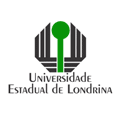Universities in Brazil

Pontifícia Universidade Católica de Campinas
Centro, Brazil
The Pontifícia Universidade Católica de Campinas, or Pontifical Catholic University of Campinas, is an educational institution specializing in both teaching and research and aimed at training students in professional excellence in a number of different fields. PUC Campinas stresses ethical and Christian values in all of its programs, enriching the knowledge and teaching students how to be successful and valued once they graduate.
To fulfill its institutional mission, the Pontifícia Universidade Católica de Campinas executes all of its activities according to the ... See full description.

Universidade Estadual de Londrina
Londrina, Brazil
The State University of Londrina offers a structure of services that guarantees tranquility, comfort and safety in its day-to-day study: Libraries, Bookstore, Publishing House, House of Culture, Language Laboratory, Program of accompaniment to students with special educational needs , Radio FM University, Educational Technology Laboratory, Afro-Asian Studies Center, Legal Affairs Office, Physical Activities Center, Support services that can be used by students, Bus Lines, Bank, Mail, Security, Service Community Welfare, University Restaurant, School Pass, Agreements with Health... See full description.

Universidade Estadual de Maringá
Maringá , Brazil
The State University of Maringá is located in the Northwest of Paraná, a region with more than two million inhabitants. It is organized in the Maringá, Umuarama, Cianorte, Goioerê, Diamante do Norte and Gaúcha City campuses, as well as the Iguatemi Experimental Farm, the Advanced Research Base in Puerto Rico and the Fishery Research Center in Floriano. It was created in 1970 and gained its recognition in 1976. At the end of the 80's, the first two masters courses were implemented. Currently, it offers 52 undergraduate courses, 93 of specialization, 28 of masters and 12 of... See full description.

Universidade Federal de Goiás
Goiânia, Brazil
The Federal University of Goiás has as its mission to generate, systematize and socialize knowledge, forming professionals and individuals capable of promoting the transformation and development of society.

Universidade Federal de Paraíba - UFPB
João Pessoa, Brazil
The Universidade Federal de Paraíba, or the Federal University of Paraíba (UFPB), formerly known as the University of Paraíba, is a municipal institution of higher education, focusing on teaching, research and community extension and development. The university, which is overseen by the Brazilian Ministry of Education, is a multi-campus institution, with facilities in the cities of Joao Pessoa, Areia, Bananeiras, Mamanguape and Rio Tinto.
More about the Federal University of Paraíba (UFPB)
Originally created in the city of Areia in 1934, the Federal University of Paraíba... See full description.

Universidade Federal de Uberlândia
Uberlândia , Brazil
Founded in 1969, since the merger of isolated colleges and federalized in 1978, UFU (Federal University of Uberlândia) currently offers 60 undergraduate, 23 master's, 14 doctoral, 30 specialization and 110 extension courses.
This academic structure is organized in 28 Academic Units (Faculties and Institutes) in the areas of Biomedical Sciences, Exact Sciences and Human Sciences and Arts.
The UFU has 1,300 teachers, 17,000 students and about 3,000 administrative technicians (mostly working in the Hospital de Clínicas), developing their activities based on the commitment of free,... See full description.

Universidade Federal de Viçosa
Viçosa, Brazil
Since its founding, the Federal University of Viçosa has accumulated extensive experience and tradition in teaching, research and extension, which form the basis of its philosophy of work.
From its earliest days, the UFV has been concerned with promoting the vertical integration of education. In this sense, it works in an effective way, currently maintaining, in addition to the undergraduate and postgraduate courses, the University College (General Secondary School), the Forest Education and Development Center (Technical High School and General Effie Rolfs State School (Elementary and... See full description.

Universidade Federal do Ceara
Fortaleza, Brazil
"The universal by the regional" is the motto of the Federal University of Ceará, an institution that seeks to focus its commitment on solving local problems, not forgetting the universal character of its production. The mission of the University is to train professionals of the highest qualification, generate and disseminate knowledge, preserve and disseminate artistic and cultural values, constituting a strategic institution for the development of Ceará, Northeast and Brazil.
Universities in Brazil by City:
BelémBrasíliaButantã CentroFortalezaGáveaGoiâniaJoão PessoaLondrinaMaracanãMaringá PelotasRecifeSalvadorSanta Cruz do SulSão PauloUberlândia ViçosaAbout universities in Brazil
Brazil’s university system is split into two parts. Like most countries, Brazil has both public and private institutions of higher education, but what sets the Brazilian system apart is the fact that the public institutions are 100% government funded. They do not require students to pay any fees or tuition. Naturally, this heavy involvement of government in the education system means that higher education in Brazil is highly centralized and tightly regulated. The end result is that public education in Brazil is extremely high-quality, but not very adaptable to changing economic needs and shifts in student interest.
Because of the large amount of federal funding they receive and the high level of priority that Brazilian society in general affords to education, public universities in the country are excellent. Unlike many places, the public institutions are the best in the country, far outstripping the private colleges in terms of the quality of instruction and the caliber of students that go there.
Because of this extremely high quality of education – and because it is offered free of charge – competition for spots in public universities in Brazil is extremely intense. There are only a limited number of spaces each year for incoming students, so teenagers in their last year of high school must work extremely hard to have good grades, impressive extracurricular activities and, above all, top scores on the university entrance exam. Known as the Vestibular, the highly competitive college entrance exam takes two days to complete and is usually held only once per year. It is a significant determining factor, and can decide the fate of prospective college students, so it is taken very seriously.
Ironically, despite being so competitive and renowned for their quality, public colleges and universities in Brazil are chronically underfunded. Because of budget constraints at the federal level and the inability of schools to raise money through competitive tuition practices, they often have trouble raising money for new buildings, equipment, and other needs. Private universities, on the other hand, which do charge fees, typically have considerably more resources at their disposal in terms of cash. Public universities maintain their reputation and prestige by ensuring that the quality of instruction is excellent, but their infrastructure often suffers as a result.
Degrees in the Brazilian system are roughly equivalent to the American Bachelor’s, Master’s, and Doctoral degrees. At the undergraduate level, there are three distinct college degrees. The bacharelado is the equivalent of a liberal arts degree or a Bachelor of Science in the U.S.A. – it provides general education in preparation for a wide range of professional careers. Brazilian colleges may also offer the licenciatura, a specialized teacher’s degree, and the tecnologia, a technical degree that typically takes less time to complete.
Because of the large amount of federal funding they receive and the high level of priority that Brazilian society in general affords to education, public universities in the country are excellent. Unlike many places, the public institutions are the best in the country, far outstripping the private colleges in terms of the quality of instruction and the caliber of students that go there.
Because of this extremely high quality of education – and because it is offered free of charge – competition for spots in public universities in Brazil is extremely intense. There are only a limited number of spaces each year for incoming students, so teenagers in their last year of high school must work extremely hard to have good grades, impressive extracurricular activities and, above all, top scores on the university entrance exam. Known as the Vestibular, the highly competitive college entrance exam takes two days to complete and is usually held only once per year. It is a significant determining factor, and can decide the fate of prospective college students, so it is taken very seriously.
Ironically, despite being so competitive and renowned for their quality, public colleges and universities in Brazil are chronically underfunded. Because of budget constraints at the federal level and the inability of schools to raise money through competitive tuition practices, they often have trouble raising money for new buildings, equipment, and other needs. Private universities, on the other hand, which do charge fees, typically have considerably more resources at their disposal in terms of cash. Public universities maintain their reputation and prestige by ensuring that the quality of instruction is excellent, but their infrastructure often suffers as a result.
Degrees in the Brazilian system are roughly equivalent to the American Bachelor’s, Master’s, and Doctoral degrees. At the undergraduate level, there are three distinct college degrees. The bacharelado is the equivalent of a liberal arts degree or a Bachelor of Science in the U.S.A. – it provides general education in preparation for a wide range of professional careers. Brazilian colleges may also offer the licenciatura, a specialized teacher’s degree, and the tecnologia, a technical degree that typically takes less time to complete.

